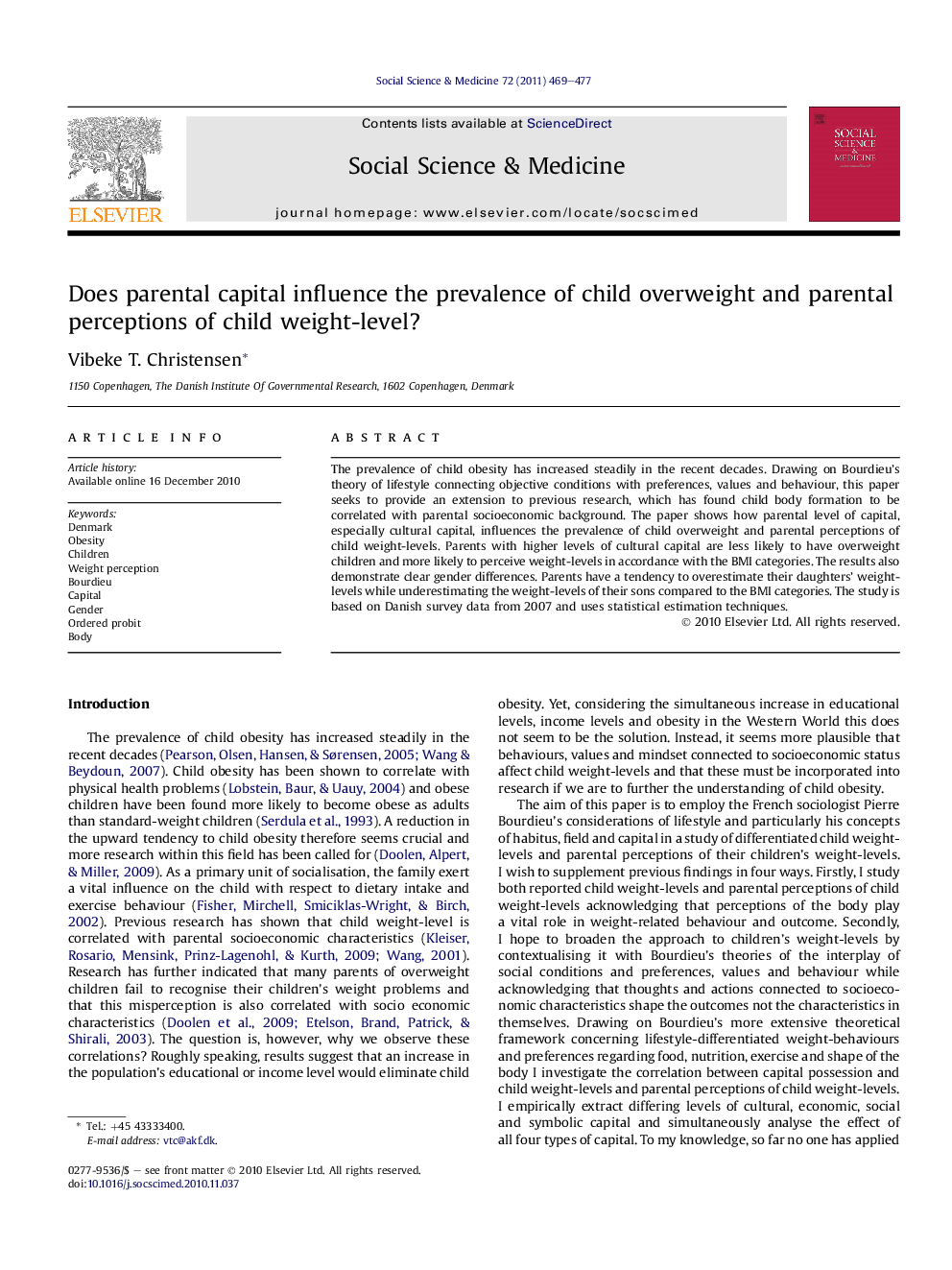| Article ID | Journal | Published Year | Pages | File Type |
|---|---|---|---|---|
| 952873 | Social Science & Medicine | 2011 | 9 Pages |
The prevalence of child obesity has increased steadily in the recent decades. Drawing on Bourdieu’s theory of lifestyle connecting objective conditions with preferences, values and behaviour, this paper seeks to provide an extension to previous research, which has found child body formation to be correlated with parental socioeconomic background. The paper shows how parental level of capital, especially cultural capital, influences the prevalence of child overweight and parental perceptions of child weight-levels. Parents with higher levels of cultural capital are less likely to have overweight children and more likely to perceive weight-levels in accordance with the BMI categories. The results also demonstrate clear gender differences. Parents have a tendency to overestimate their daughters’ weight-levels while underestimating the weight-levels of their sons compared to the BMI categories. The study is based on Danish survey data from 2007 and uses statistical estimation techniques.
Research highlights► The article studies child body formation drawing on Bourdieu's theory of lifestyle. ► Parents with higher levels of cultural capital are less likely to have overweight children. ► Weight perception accordance with BMI categories increase with cultural capital. ► Parents overestimate their daughters' weight-levels compared to the BMI categories. ► Parents underestimate their sons' weight-levels compared to the BMI categories.
